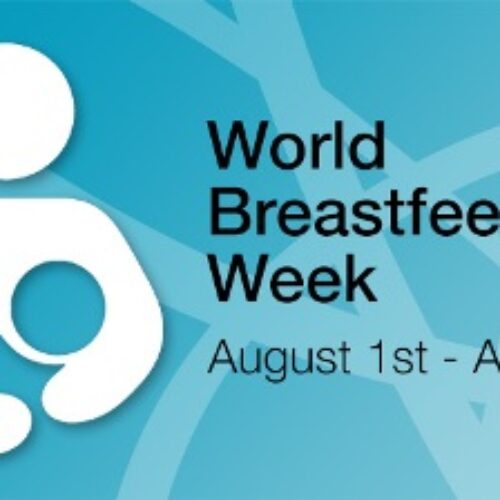My aged mother prefers farm work to quiet city life. Is this healthy?
-
Yes, keeping your hitherto active elderly mum in confined city environment could be detrimental to her health – Prof Useh
Dear Prof,
Happy new year to you.
I’m a busy businessman and owner of a private company in Enugu, my wife also works in a bank. We have a hard-working middle-aged nanny who takes good care of our two children. I lost my dad last year and my wife and I decided to bring my mum, who is in her 60s, from the village to live with us. Our Nanny is quite comfortable with her as she also helps with the children.
My parents were both farmers and we thought we should relocate my widowed mum to take a break from farm work. But she seems not happy about this. These days, she complains of body pain. Sometimes I give her malaria drugs in addition to her regular pain drugs like paracetamol.
She has spent four months with us but seems not happy. She thinks the cause of her body pain is her idleness so she wants to be returned to her farm work in the village. She refused to be taken to the hospital for proper treatment. A friend thinks the farm work may actually be better for her health than the idle city life we have chosen for her. I totally disagree with that but Prof, what do you think?
Albert, Enugu
Dear Albert,
Thank you for your email and the interest to seek care and support for your mother. While I note that your intentions are quite good, however, keeping hitherto active elderly persons in a confined environment could be detrimental to their health. The principle of “loose it when you don’t use it” applies. That is, when a normally active group of muscles is not used, it becomes weak, smaller, and frail looking. Her farm work had kept her very active, happy, strong and health. The resultant effect of her regular farm work is improved blood flow or circulation (producing a healthy heart), improved muscle strength, power and endurance and improved flexibility and improved reflexed and general nervous system. The parameters of the cardiovascular systems, the muscles, etc are all referred to health-related fitness parameters. Keeping and remaining active for the elderly also improves bone health and strength.
Albert, the psycho-social impact of seeing her produce grow in a community where there are friends and family is also very satisfying. You also mentioned that she feels body pain, yes, this is because she is inactive and confined to the space and the ligaments and tendons are no longer stretching as they use to.
The change in dietary habits and pattern also impacts on her health systems and quality of life. This is because your mother has been used to eating fresh and healthy farm produce/ vegetables with just enough protein from the free ranged chicken and their eggs to now commercialised and frozen ones. Mama must also have been used to eating fresh fish but now must eat the not so fresh ones. The change in these dietary habits and patterns would also be detrimental to her health. The other important factors that might make her unhappy is the fact that she might be missing her family and friends that she has been used to for over six decades. Spending four months away from her friends and her natural habitat might also not make her so happy.
You may need to consider returning your mother home or make her active in her new home. If you won’t return her to the village then let her begin a small garden that she has to tend daily to improve her heart and muscular health. The “FITT” principles shall apply.
To achieve this purpose, I will suggest that you consult a physiotherapist with a good knowledge of exercise prescription to design for you an exercise or daily activity progamme . The exercise plan follows a certain principle with the following acronym: FITT. This is used the guide the amount of exercises and the type of exercise that will be ideal for you. In simple terms, FITT can be likened to dosing an exercise programme.
This FITT principles has been previously explained in this column. The “F” stands for Frequency of exercise, that is how many times or often should these exercises be performed in a week. The ideal frequency to attain the maximum and the desired effect is between three to five times a week. Using this guide, your mother must tend her garden at least 4 times a week. Anything less will achieve nothing and more might also not be of many benefits.
The “I” in the FITT principle stands for Intensity. I call this the exercise gauge. That is how much exercises the body system tolerates. This is measured by the ability of the heart and lung to cope with the nature and type of your exercise. To gauge the intensity, your target heart rate is usually calculated based on your age with a formula or formulae and appropriate intensity is determined for you. Albert, in your case your mother who is in her 60s would have her intensity calculated as 220 minus her age, and then multiply this by 60 percent depending on other factors like the presence or absence of comorbidities such as hypertension, diabetes mellitus, etc. We could use 70 to 80% if she was younger.
The first “T” in the FITT principle stands for the type of exercise that you are engaged in. The type or nature of exercises is also very important. This must be planned to increase your body’s endurance (the capacity of your muscles to withstand prolonged tasks or exertion) and strength (the ability of your muscle to carry out a short and high-intense task at a short period.
The last “T” in the FITT principle stands for the Duration of time for which you should exercise per exercise programme. The prescribed time or duration is usually between 30 and 45 minutes to one hour. You can progressively increase this over time. Albert, your mother must exercise consistently for 30 minutes for several weeks, months, or years.
Best Wishes.







0 Comments
No Comments Yet!
You can be first to comment this post!